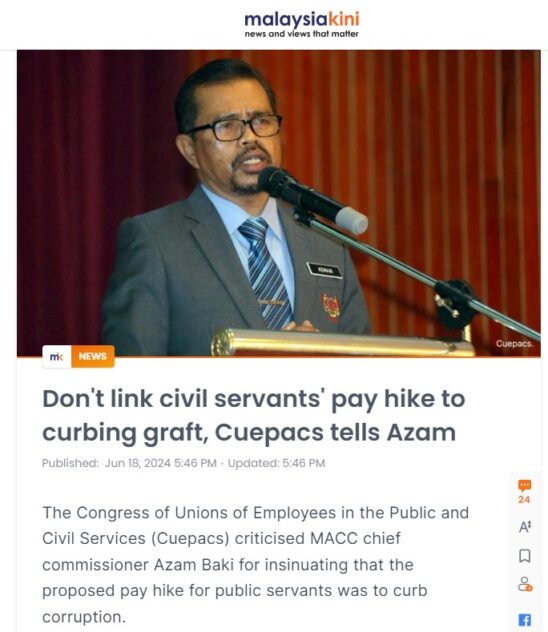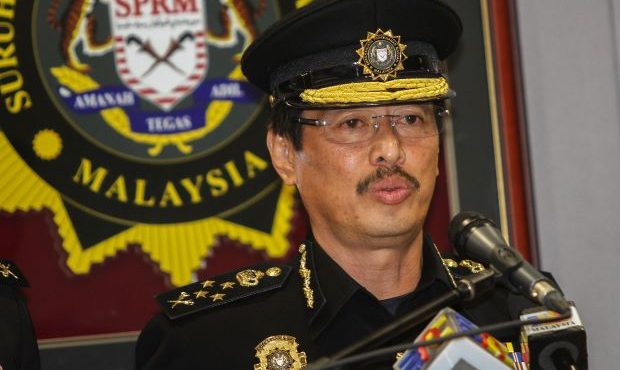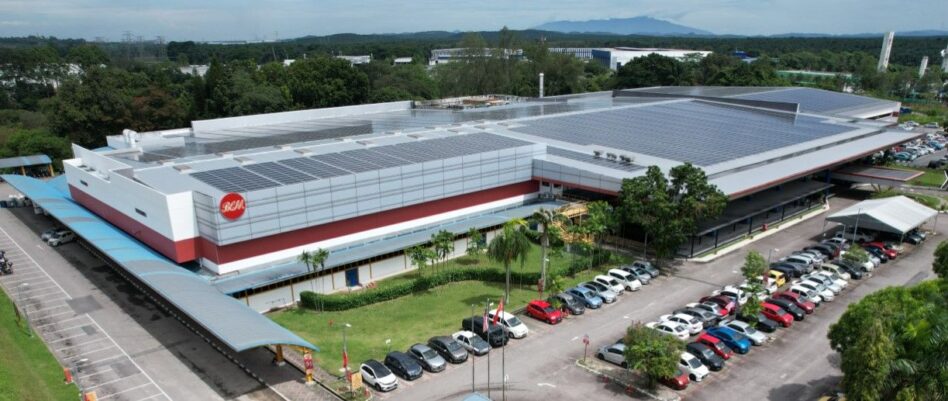IS THE government operating on the assumption that paying higher salaries to civil servants can curb corruption?
I am not sure whether this is the prime consideration of the government in proposing salary increases for civil servants and ministers.
In Singapore, ministers were given huge salary increases to curb corruption during the time of its first prime minister Lee Kuan Yew. However, whether this prevented corruption remains to be seen.
Salary increases for civil servants are predicated on a number of grounds such as the necessity for periodic increases to keep abreast with inflation or increase in price of goods and services. among others.
I don’t think salary hikes in the Malaysian case are meant to curb the nefarious practice of corruption. The necessity to curb corruption could have been implicit in the agenda for salary increases.
The Malaysian Anti-Corruption Commission (MACC) is a federal agency set up to combat corruption in the country. Its functions cover both the private and public sectors.
Through its long years of experience in fighting corruption, the MACC might have some idea about the linkage between corruption and salary increases.
Lately in commenting about salary increases for civil servants, the graft buster’s chief commissioner Tan Sri Azam Baki thinks that it is false to equate salary increase as a way to combat corruption.
He thinks that corruption stems from greed in seeking opportunities and issues regarding governance.
Salary not the sole determinant
Therefore, he disagreed with the notion that salary increases among civil servants will stem the tide of corruption.
Azam heads the main anti-graft agency in the country. It is an enforcement agency responsible in cracking down on corruption by throwing the books at the perpetrators.
But unfortunately, Azam is not an expert on what contributes to corruption in society. His principal job is to provide the leadership to stem the tide of corruption in the country.

However, going on the basis of past records, the MACC is not above board in cracking down corruption. The agency has been criticised for not taking action against certain individuals.
Selective persecution might be something that ails the agency. Beyond this, the MACC might have compromised its independence by being dependent on the executive in the execution of its duties.
The call for the MACC to be responsible to the Parliament has fallen on deaf ears so far.
Azam is not a chief theorist on what contributes to corruption. However, he might be right in saying that salary increases might not defeat the persistence of corruption in the country.
Corruption is like a disease that needs to be eradicated by examining the root cause and not to treat the symptoms.
A country can have all the laws, rules and regulations in combating corruption but this must be complemented by the political will on the part of the national leadership to combat corruption.
Without a strong and committed leadership, the plethora of mechanisms established to fight corruption will have no meaning.
Azam should not waste time by talking about the relations between salary increases and whether they have any relationship with the need to combat corruption. – June 19, 2024
Former DAP stalwart and Penang chief minister II Prof Ramasamy Palanisamy is chairman of the United Rights of Malaysian Party (Urimai) interim council.
The views expressed are solely of the author and do not necessarily reflect those of Focus Malaysia.










